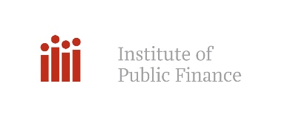
Country: Croatia
Website: www.ijf.hr
Focal Point: Predrag Bejakovic, Senior Researcher
Email: email hidden; JavaScript is required
Tel: +385 1 488 64 55
Mission and vision
IPF’s mission is: to establish as much financial, political and economic independence as possible in Croatia; to be specialized and highly knowledgeable in public sector economics; and to undertake quality research on public sector economics pertaining to legal and institutional topics relevant to economic growth, social inclusion and meeting the EU standards. A particular emphasis is placed on public sector transparency, government accountability and citizen participation.
IPF’s vision is achieving the capability to:
- Provide quality analysis of public sector economics
- Promote understanding of contemporary principles of public sector economics
- Publish research results in the best scientific journals, as well as offering them to the general public
- Propose practical, efficient and fiscally sound measures
- Contribute to the improvement of the current fiscal model and its adaptation to the EU requirements
- Develop international cooperation with other networks
General description of the CSO work in the anti-corruption area
IPF is very active in advocating the participation of citizens in matters pertaining to public policies, particularly those related to fiscal/budgetary matters. IPF regularly publishes various booklets and guides encouraging the participation of the citizens in the fiscal/budget process as well as the public finance field which is essential in the fight against corruption.
Specific description of the CSO work in relation to the UNCAC
IPF is not directly involved with the UNCAC, but the primary goal of IPF is to research into the efficiency, sustainability and responsibility of the public sector in order to present objective findings to the public and to policy makers and suggest ideas for improving and removing shortcomings. In order to achieve this goal, IPF analyses economic trends and the effects of economic policy in the public sector. For instance: tax policy and reforms, wage policy, decentralization, state regulation, financing of subnational government, state aid, and public services financing for purposes such as higher education, culture, sports, health, etc. Among the more important topics researched by IPF are: open budgets, participation of citizens in the fiscal/budgetary process, the unofficial economy, influence of the institutional environment on economic growth, direct foreign investments, corruption, redistributive effects of taxes and welfare benefits.
Specific description of the CSO work in relation to the review mechanism of the UNCAC
IPF’s activities are not directly linked with the review mechanism of UNCAC, but IPF performs scientific work by following its research mission and vision, with the purpose of improving public sector efficiency. IPF analyses important social issues and proposes solutions for many phenomena. IPF analyses include: the tax system and policy, distribution of tax burden, decentralized state functions, local government financing, transparency of the budget and budgetary processes, state aid and industrial policy, international competitiveness, public sector governance, labour market flexibility and security, unemployment, solutions for an equitable and sustainable pension and health system, citizens’ participation in the fiscal/budgetary process, and government accountability. Corruption is almost always a constant component of the aforementioned areas of focus.
Within the above-listed fields of research, IPF scientists have the freedom to choose topics they wish to investigate. The working atmosphere and high academic standards stimulate the creativity of researchers. The greatest prize for scientific curiosity and dedication to science is the success of publishing papers in prestigious scientific journals, whilst the knowledge gained through research and professionalism help project research to be completed efficiently and well.
Since science does not exist for its own sake, but to improve the life of the society, IPF scientists try to deal with specific proposals for improvement of public policy. Because messages from scientific papers (including IPF’s own journal) hardly ever reach the general public, IPF strives to communicate its findings to the public and policy-makers through Press Releases, Newsletter, Citizens Guides, etc.



